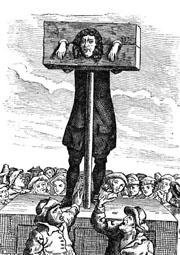What do our opponents mean when they apply to us the label “Liberal?” If by “Liberal” they mean, as they want people to believe, someone who is soft in his policies abroad, who is against local government, and who is unconcerned with the taxpayer’s dollar, then the record of this party and its members demonstrate that we are not that kind of “Liberal.” But if by a “Liberal” they mean someone who looks ahead and not behind, someone who welcomes new ideas without rigid reactions, someone who cares about the welfare of the people — their health, their housing, their schools, their jobs, their civil rights, and their civil liberties — someone who believes we can break through the stalemate and suspicions that grip us in our policies abroad, if that is what they mean by a “Liberal,” then I’m proud to say I’m a “Liberal.”
But first, I would like to say what I understand the word “Liberal” to mean and explain in the process why I consider myself to be a “Liberal,” and what it means in the presidential election of 1960.
In short, having set forth my view — I hope for all time — two nights ago in Houston, on the proper relationship between church and state, I want to take the opportunity to set forth my views on the proper relationship between the state and the citizen. This is my political credo:
I believe in human dignity as the source of national purpose, in human liberty as the source of national action, in the human heart as the source of national compassion, and in the human mind as the source of our invention and our ideas. It is, I believe, the faith in our fellow citizens as individuals and as people that lies at the heart of the liberal faith. For liberalism is not so much a party creed or set of fixed platform promises as it is an attitude of mind and heart, a faith in man’s ability through the experiences of his reason and judgment to increase for himself and his fellow men the amount of justice and freedom and brotherhood which all human life deserves.
I believe also in the United States of America, in the promise that it contains and has contained throughout our history of producing a society so abundant and creative and so free and responsible that it cannot only fulfill the aspirations of its citizens, but serve equally well as a beacon for all mankind. I do not believe in a superstate. I see no magic in tax dollars which are sent to Washington and then returned. I abhor the waste and incompetence of large-scale federal bureaucracies in this administration as well as in others. I do not favor state compulsion when voluntary individual effort can do the job and do it well. But I believe in a government which acts, which exercises its full powers and full responsibilities. Government is an art and a precious obligation; and when it has a job to do, I believe it should do it. And this requires not only great ends but that we propose concrete means of achieving them.
Our responsibility is not discharged by announcement of virtuous ends. Our responsibility is to achieve these objectives with social invention, with political skill, and executive vigor. I believe for these reasons that liberalism is our best and only hope in the world today. For the liberal society is a free society, and it is at the same time and for that reason a strong society. Its strength is drawn from the will of free people committed to great ends and peacefully striving to meet them. Only liberalism, in short, can repair our national power, restore our national purpose, and liberate our national energies. And the only basic issue in the 1960 campaign is whether our government will fall in a conservative rut and die there, or whether we will move ahead in the liberal spirit of daring, of breaking new ground, of doing in our generation what Woodrow Wilson and Franklin Roosevelt and Harry Truman and Adlai Stevenson did in their time of influence and responsibility.
Our liberalism has its roots in our diverse origins. Most of us are descended from that segment of the American population which was once called an immigrant minority. Today, along with our children and grandchildren, we do not feel minor. We feel proud of our origins and we are not second to any group in our sense of national purpose. For many years New York represented the new frontier to all those who came from the ends of the earth to find new opportunity and new freedom, generations of men and women who fled from the despotism of the czars, the horrors of the Nazis, the tyranny of hunger, who came here to the new frontier in the State of New York. These men and women, a living cross section of American history, indeed, a cross section of the entire world’s history of pain and hope, made of this city not only a new world of opportunity, but a new world of the spirit as well.
Tonight we salute Governor and Senator Herbert Lehman as a symbol of that spirit, and as a reminder that the fight for full constitutional rights for all Americans is a fight that must be carried on in 1961.
Many of these same immigrant families produced the pioneers and builders of the American labor movement. They are the men who sweated in our shops, who struggled to create a union, and who were driven by longing for education for their children and for the children’s development. They went to night schools; they built their own future, their union’s future, and their country’s future, brick by brick, block by block, neighborhood by neighborhood, and now in their children’s time, suburb by suburb.
Tonight we salute George Meany as a symbol of that struggle and as a reminder that the fight to eliminate poverty and human exploitation is a fight that goes on in our day. But in 1960 the cause of liberalism cannot content itself with carrying on the fight for human justice and economic liberalism here at home. For here and around the world the fear of war hangs over us every morning and every night. It lies, expressed or silent, in the minds of every American. We cannot banish it by repeating that we are economically first or that we are militarily first, for saying so doesn’t make it so. More will be needed than goodwill missions or talking back to Soviet politicians or increasing the tempo of the arms race. More will be needed than good intentions, for we know where that paving leads.
In Winston Churchill’s words, “We cannot escape our dangers by recoiling from them. We dare not pretend such dangers do not exist.”
And tonight we salute Adlai Stevenson as an eloquent spokesman for the effort to achieve an intelligent foreign policy. Our opponents would like the people to believe that in a time of danger it would be hazardous to change the administration that has brought us to this time of danger. I think it would be hazardous not to change. I think it would be hazardous to continue four more years of stagnation and indifference here at home and abroad, of starving the underpinnings of our national power, including not only our defense but our image abroad as a friend.
This is an important election — in many ways as important as any this century — and I think that the Democratic Party and the Liberal Party here in New York, and those who believe in progress all over the United States, should be associated with us in this great effort.
The reason that Woodrow Wilson and Franklin Roosevelt and Harry Truman and Adlai Stevenson had influence abroad, and the United States in their time had it, was because they moved this country here at home, because they stood for something here in the United States, for expanding the benefits of our society to our own people, and the people around the world looked to us as a symbol of hope.
I think it is our task to re-create the same atmosphere in our own time. Our national elections have often proved to be the turning point in the course of our country. I am proposing that 1960 be another turning point in the history of the great Republic.
Some pundits are saying it’s 1928 all over again. I say it’s 1932 all over again. I say this is the great opportunity that we will have in our time to move our people and this country and the people of the free world beyond the new frontiers of the 1960s.
— Sen. John F. Kennedy, acceptance of the New York Liberal Party Nomination, September 14, 1960.


 Bonnie reminded me that this is the anniversary of the Kennedy assassination. Here is part of JFK’s legacy —
Bonnie reminded me that this is the anniversary of the Kennedy assassination. Here is part of JFK’s legacy — I haven’t commented on either the recent O.J. Simpson or Michael Richards news stories because they’re outside the purview of this blog, but
I haven’t commented on either the recent O.J. Simpson or Michael Richards news stories because they’re outside the purview of this blog, but